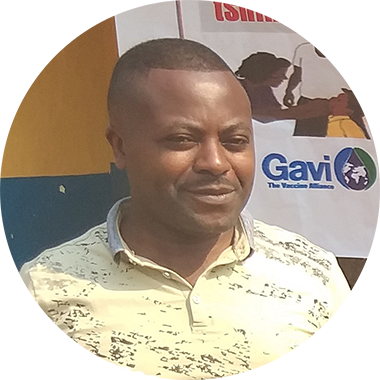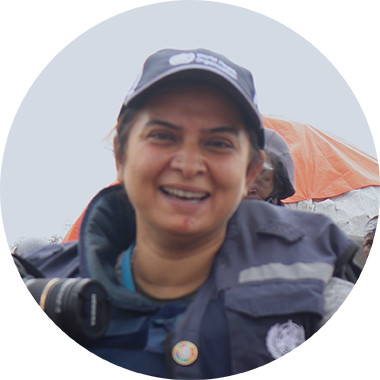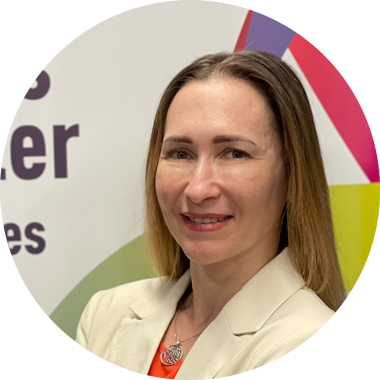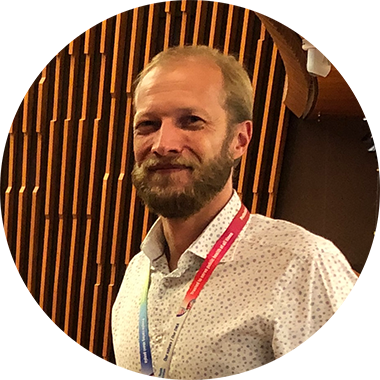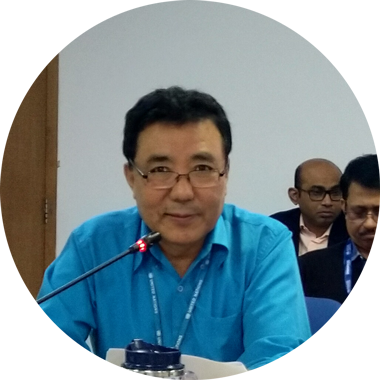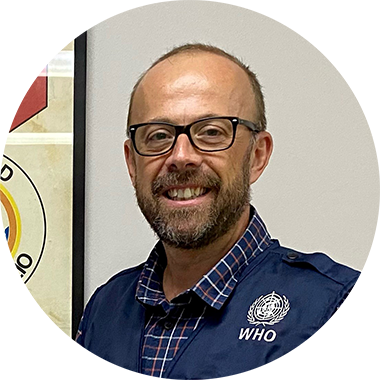
Linda Muzenda
IT Team Leader - Regional Office for Africa, Republic of the Congo
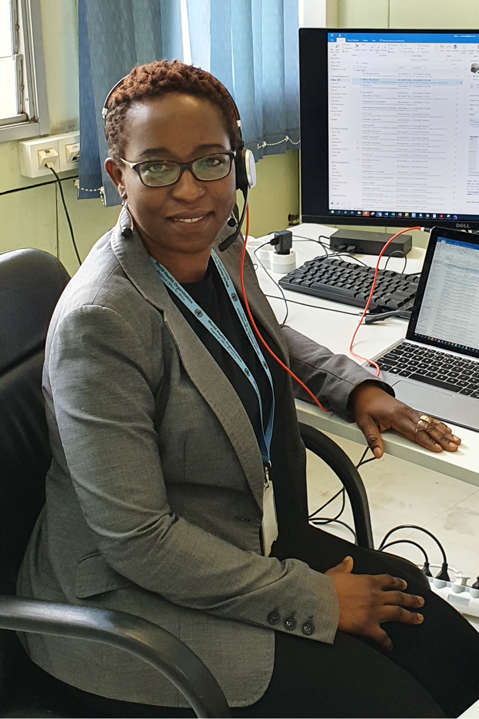
When Linda Muzenda was a child, her high school mathematics teacher often challenged her with problem scenarios. She loved problem solving and breaking down puzzles into smaller pieces, so her choice of study wasn’t a surprise to those who knew her. After high school she studied computer science and found work in an IT department in private industry, where she had to sink or swim. After some years establishing herself on the corporate ladder and gaining useful experience, she heard about WHO’s work from a friend and decided to apply for a job. Her selection meant uprooting from her home in Harare, Zimbabwe, a year later and moving to WHO’s Regional Office for the African Region in Brazzaville, Republic of the Congo, but she was up for the challenge.
Linda was attracted to the idea of contributing to the bigger picture, beyond the profits of private industry, as well as an opportunity to work for WHO’s global mission. She wanted to experience a multicultural work environment and felt she had landed the perfect entry point to WHO through managing the public website. This gave her immediate access to the latest health news, every WHO programme in all 47 African Member States, as well as the WHO governing body meetings and mechanisms used to support a global organization. It was a great fit for Linda and she saw it as an opportunity to use her experience with technology while gaining an understanding of the issues affecting public health and WHO’s work in the African Region.
Today Linda is a team leader for the Information Technology Department in the WHO Regional Office for Africa, where she oversees a help desk team and an applications development team. She and her colleagues provide IT support to WHO workers and develop applications to help automate some of the more complex business processes. Linda explains that IT is largely about providing an infrastructure to serve staff and solve problems. “There are times where one size does not fit all and there are complex situations which require intervention to find a custom solution. In IT we face new challenges every day and being able to remain calm and think fast in crisis situations is essential.” Her work helps staff carry out their daily tasks, since almost everything is now done with computers. It helps staff organize meetings and remain connected within the organization and to external partners. Linda sees herself as an enabler, ensuring that staff members receive needed IT support or solutions to help them achieve their objectives.
For her job, Linda needs a service mentality as well as a problem-solving approach to respond to the variety of requests she receives. She listens carefully to interpret needs and anticipate demands and is always open to new ideas. She is aware of how quickly technology evolves and that the information technology field is paramount to WHO’s existence in today’s ever-changing world. “A day without IT is like a machine without oil; the Organization would grind to a halt,” she says.
“The Information Technology field of work is important to WHO and we could not survive without it. A day without IT is like a machine without oil; the Organization would grind to a halt.”
With the COVID-19 pandemic, Linda has seen the importance of immediate and accurate communications. She explains, “There were so many conspiracies and so much misinformation, and WHO was the only point of reference that the public could authoritatively reference.” All this guidance and communication has to be compiled, approved, shared and stored using IT. The voice of WHO has never been more needed and it is through information technology that the whole world can be given clear guidance at such a difficult time. During the lockdowns across the region, her teams needed to be sure that staff could all connect to the network and work productively throughout. Some tools were new to staff, so support and customer service were also key determinants to success.
WHO handles as many as 30 emergency situations around the world at any given time, many of which are in the African Region. Information technology is needed to keep people in the office connected to teams on the ground in all African countries, especially those affected by emergencies. A timely and effective response is crucial in complex situations, and IT mapping tools are used to find out who is affected and where, what they need and who can be deployed to help. IT and media are also used in fundraising campaigns and later for managing the funds and reporting on the results and impacts. Without these tools, the organization could not function.
Outside of emergencies, data collection and analysis help keep WHO up to date on all aspects of global health. While Linda doesn’t always work with data directly, her role is to facilitate the sharing of data to ensure it can be used effectively. “We are living in a data-driven world,” she says. “This work helps WHO to understand and address any gaps in Universal Health Coverage.”
Together with her studies, varied experience and years working for WHO in IT, Linda continues to break down problems and solve them. For her, it’s the perfect balance between doing what she loves and contributing to the wider goals of global health.

